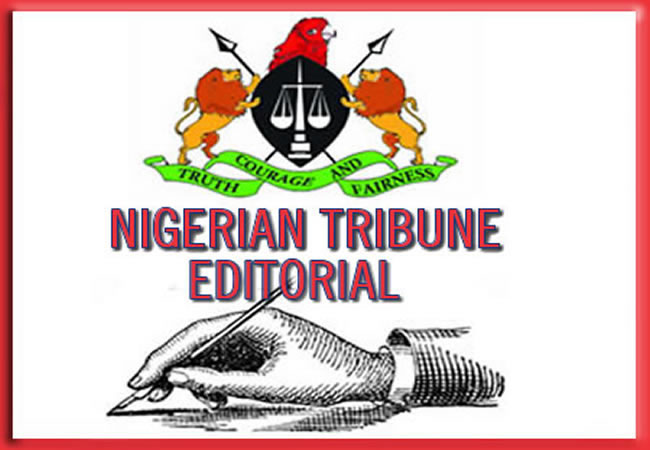The US terror alert – Tribune Online
[ad_1]
LAST week, the United States government issued a statement warning of an impending terrorist attack on the Federal Capital Territory (FCT), Abuja. It immediately followed this warning with an order to its non-emergency diplomatic staff and members of their families to leave Abuja. It claimed that there was “heightened risk of terrorist attacks” and that “terrorists may attack with little or no warning,” with soft targets being malls, markets, hotels, restaurants, bars or schools. The US Department of State also announced its approval of the evacuation when it updated its Nigeria travel advisory. The UK, Canada and Australia also followed suit with warnings on their nationals to beware of Abuja. The travel advisory immediately generated panic, leading to the closure of schools and shops. British Airways also re-routed its flights from Abuja to Lagos.
While the US, ostensibly in pursuit of its duties as a state to its nationals all over the world, has been issuing alerts for a long time, the current one is remarkably different. It did not just warn of an impending attack, it called on categories of its staff to evacuate their families as if Nigeria was in a state of war. Predictably, the Federal Government’s reaction to the advisory was immediate. Minister of Information and Orientation, Alhaji Lai Mohammed, literally claimed that the warnings were a figment of the imagination of the countries issuing them. While saying that the government would not be stampeded by whatever any government told its citizens to do, Mohammed said that despite the attempts being made by terrorists to embarrass the Federal Government, the security agencies were in control.
His words: “I want to reassure both citizens, non-Nigerians and Nigerians living in this country that security agencies are on top of this matter. Of course, the terrorists would not stop to try to embarrass or intimidate government but what I’m saying is that this country is safe. And there’s no cause for alarm. No cause to panic. Unfortunately, because of that travel advisory, on Sunday many schools were closed, shops were closed, travel plans were disrupted; we don’t need it. The security – our soldiers, our police— are working round the clock to contain any terrorist attack. This is where we stand.” On Monday, the National Security Adviser, Babagana Monguno, toed a similar path, dismissing the US alert as exaggerated and needless.
The back-and-forth between the foreign countries and the Federal Government came as confusion greeted the raid reportedly conducted by security forces who stormed the Trademore Estate, Abuja. The raid followed a tipoff on the presence of terrorists in the estate. Without any equivocation, the US issuing an advisory to its citizens living in Nigeria shows that it cares about its people. There is no gainsaying the fact that the heightened presence of terrorists has been noted in Abuja, a territory which has proved to be an exceptional target for terrorists. Warning of an impending attack is logical, as it coheres with the realities on the ground. No one needs to be told that Nigeria is not safe and that there have been attempts to overrun the seat of power recently. On several occasions, terrorists have attacked various parts of the FCT, including the University of Abuja, killing and abducting people. And unlike the Ministry of Information which Alhaji Mohammed heads, the Nigeria Police and the Department of State Services (DSS) were cautious in their approach to the advisory. Not only did the Minister of Information dabble into security matters, his attempt to appeal to patriotism in the face of the realities of insecurity in Nigeria sounded more like cant.
ALSO READ FROM NIGERIAN TRIBUNE
Rather than appealing to the patriotic instincts of Nigerians through manufactured peace in a climate of palpable apprehension of violence, we think that the government should be more interested in getting the assurances of Nigeria’s security architecture on how impregnable it has made Abuja to terrorists and invaders. There must be increased checks on vehicles and monitoring of suspicious movements. The alert by the United States is yet another indication of the level of and depth of insecurity in the country. It is a pointer to the growing realisation of the inability of the current government in Nigeria to do anything worthwhile about it. Abuja, Lagos and other areas should be maximally protected. Evidently, a country that sets great store by the security of the lives of its citizens like the US cannot leave them in the crosshairs of insecurity as it exists in Nigeria today. This validates and justifies its prompt action in alerting its citizens on what to do. What is advertised is Nigeria and its government’s pretence that all is well and that the security advisories by foreign countries are meant to unjustly create panic in the country.
The government should stop deceiving itself and come to terms with the vastly deteriorating security situation in the country. It must start to put in place concrete measures and structures to combat insecurity. The US would not be stampeding its citizens out of Nigeria if it did not have clear and actionable intelligence about impending terrorist attacks and overall deep insecurity in Nigeria. It is, therefore, in the interest of Nigeria for the government to fully apprehend the depth of the current situation and show some commitment to shoring up security. As it is now, Nigerians do not have the luxury of leaving their own country because of growing insecurity.
[ad_2]















Post Comment